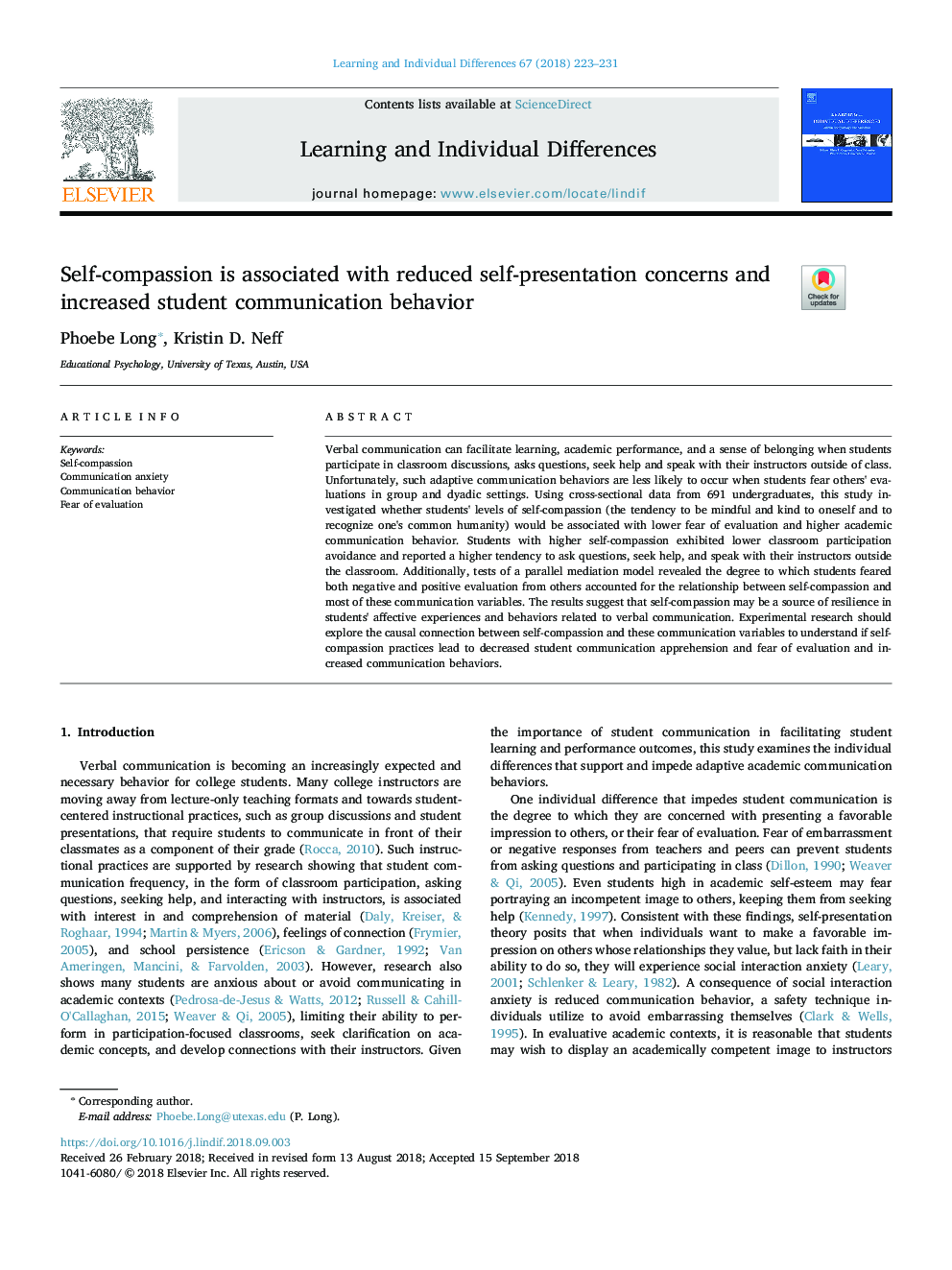| Article ID | Journal | Published Year | Pages | File Type |
|---|---|---|---|---|
| 11002165 | Learning and Individual Differences | 2018 | 9 Pages |
Abstract
Verbal communication can facilitate learning, academic performance, and a sense of belonging when students participate in classroom discussions, asks questions, seek help and speak with their instructors outside of class. Unfortunately, such adaptive communication behaviors are less likely to occur when students fear others' evaluations in group and dyadic settings. Using cross-sectional data from 691 undergraduates, this study investigated whether students' levels of self-compassion (the tendency to be mindful and kind to oneself and to recognize one's common humanity) would be associated with lower fear of evaluation and higher academic communication behavior. Students with higher self-compassion exhibited lower classroom participation avoidance and reported a higher tendency to ask questions, seek help, and speak with their instructors outside the classroom. Additionally, tests of a parallel mediation model revealed the degree to which students feared both negative and positive evaluation from others accounted for the relationship between self-compassion and most of these communication variables. The results suggest that self-compassion may be a source of resilience in students' affective experiences and behaviors related to verbal communication. Experimental research should explore the causal connection between self-compassion and these communication variables to understand if self-compassion practices lead to decreased student communication apprehension and fear of evaluation and increased communication behaviors.
Related Topics
Social Sciences and Humanities
Psychology
Developmental and Educational Psychology
Authors
Phoebe Long, Kristin D. Neff,
